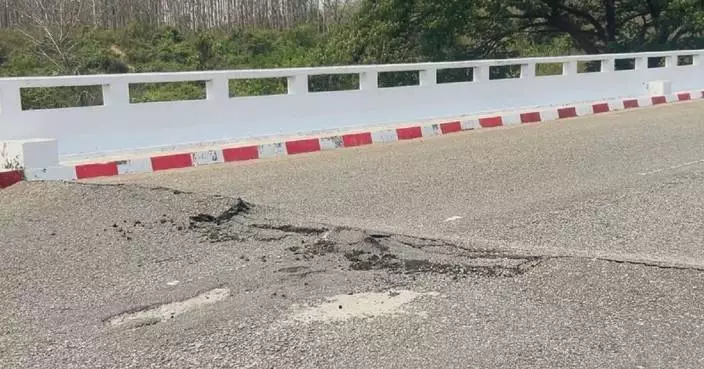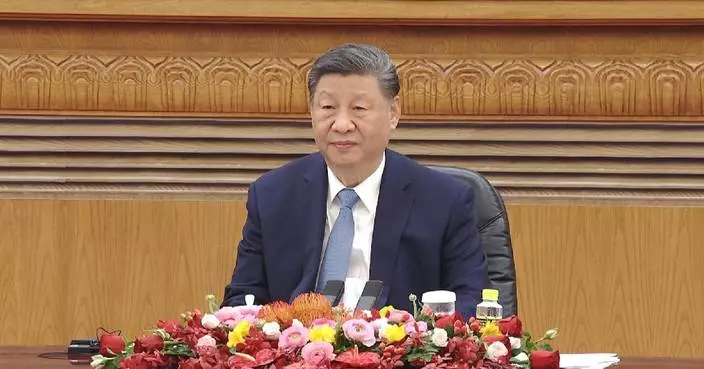A Chinese expert has warned that U.S. President Donald Trump's plan to levy additional fees on China-linked vessels will disrupt the global supply chain and backfire on the U.S. economy.
The Office of the United States Trade Representative has proposed new fees on vessels operated by Chinese ship operators or built in China calling on U.S. ports as a means to counter China's dominance in the maritime sector and bolster U.S. shipping interests.
The new proposal includes up to 1.5 million U.S. dollars per port call for ships built in China, and up to 1 million U.S. dollars per port call for ships operated by Chinese companies.
Huang Renwei, executive vice dean of the Fudan Institute of Belt and Road and Global Governance, said that the U.S. move is a violation of basic international navigation rules.
"This matter is in a sense inconsistent with the principles of trade. Global freedom of navigation is not subject to taxes by these countries. The port fees should be levied by the entity that operates the port, not the government," said Huang.
China built more than half of the world's merchant ships by gross tonnage in 2024, making it the global leader.
Huang said given the large number of Chinese-built ships around the world, the port fees would impact China's shipping industry but eventually the U.S. would pay the price.
"There would be some impacts on the Chinese shipping industry, but just like raising tariffs, I think it would affect Chinese exports to the U.S., but it would finally affect consumption and production in the U.S. So if the U.S. decided to levy port fees, then of course it would reduce the number of Chinese ships docking in U.S," Huang said.
The Trump administration said the move aims to revive its domestic shipbuilding industry. But according to Professor Huang, China's main competitors in shipbuilding are Japan and South Korea, and Washington cracking down on the Chinese shipbuilding industry won't make America great again.
"China's production capacity in the shipbuilding industry is now 200 times that of the United States. Even if China's shipbuilding industry stagnated for 10 years, the United States still could not catch up. The port fees for sure would influence China's shipbuilding industry, but the proportion of the impact would not be so big," he said.
China has ranked first for 15 consecutive years across three major shipbuilding indicators: ships completed, orders currently held, and new orders received.
Huang said the proposed port fees would further impact the global industrial chain, since shipbuilding needs global cooperation.

Proposed US port fees on Chinese ships could backfire: expert



















































